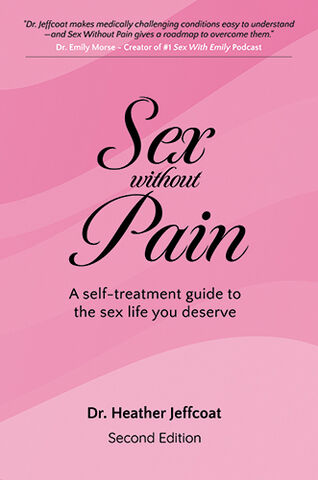A good example is this latest article on the Forbes website about strengthening your pelvic floor pre and post baby. In reasearching this article, Forbes writer Racheal Ede reached out to me for my input. Here is a brief synopsis of the article interspersed with a few notes from yours truly. A link to the full article is included below.
Heather Jeffcoat, DPT
Learn How To Strengthen The Pelvic Floor Pre And Post Baby
Tips for pregnancy and beyond
The article opens with a brief overview of the impacts of pregnancy on the pelvic floor pre and post baby:
As pregnancy progresses, and even after delivery, you may notice changes in your pelvic floor — including leaking when you cough or sneeze or pain during sex — which could be signs of weaker pelvic floor muscles. Pelvic floor muscles are often impacted by pregnancy, and childbirth puts considerable pressure on the pelvic floor and can cause issues long after delivery, which can in turn impact its functions and anatomy.
"Fortunately, you can strengthen pelvic floor muscles. Pelvic floor training can help your muscles cope with the demands of pregnancy and childbirth, and may also help the muscles restore themselves after injury.
This may not be news to regular readers of our site, but we have written many articles describing all aspects of pregnancy and pelvic floor health. Navigate here for links to pregnacy related diagnoses we treat, and here for the various treatments we offer.
The article continues with lots of great background information for readers who are not familiar with the topic.
What is the pelvic floor and what does it do?
Racheal writes:
The pelvic floor is made of muscles and connective tissues that support the organs in your pelvic region, including the bladder, urethra, vagina, uterus, anus and rectum. The pelvic floor muscles form a hammock that stretches from your pubis (in front) to the spine (back), and are located between the sitting bones.
She goes on to describe the various duties of your pelvic floor muscles, including excretion, delivery, arousal, posture, and respiratory functions. This page lists all of the common pelvic floor related diagnoses we treat.
Pelvic Floor and Pregnancy
Racheal and I also discuss a number of factors that affect the pelvic floor during delivery, including:
- Weight of the baby
- The body's release of the hormone relaxin during delivery
- Stretching of the Pudendal nerve
- Complications that can weaken the muscles
Any of the above factors can contribute to a weakened or damaged pelvic floor, and may cause symptoms such as:
- Urinary incontinence (unintentional loss of urine)
- Fecal incontinence (unintentional loss of stool)
- Pelvic organ prolapse (when organs in the pelvis shift from their position and bulge into the vagina)
- Chronic pelvic pain
- Pain during sex
Other Conditions That Can Affect the Pelvic Floor
- Age
- Obesity
- Genetic predisposition
- Surgeries
Other factors like smoking, heavy lifting, chronic constipation (which can cause straining to pass stool), and persistent coughing may also contribute to weakness of the pelvic floor.
These are just some snippets from the full article. Go here for the full article at the Forbes website which includes tips on strengthening the pelvic floor pre and post baby, and go here if you're ready to take the plunge with one of our trained physical therapists.


















